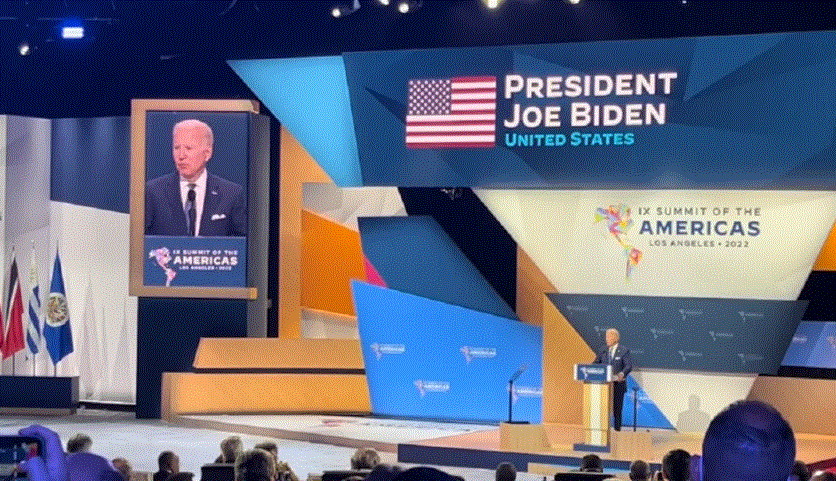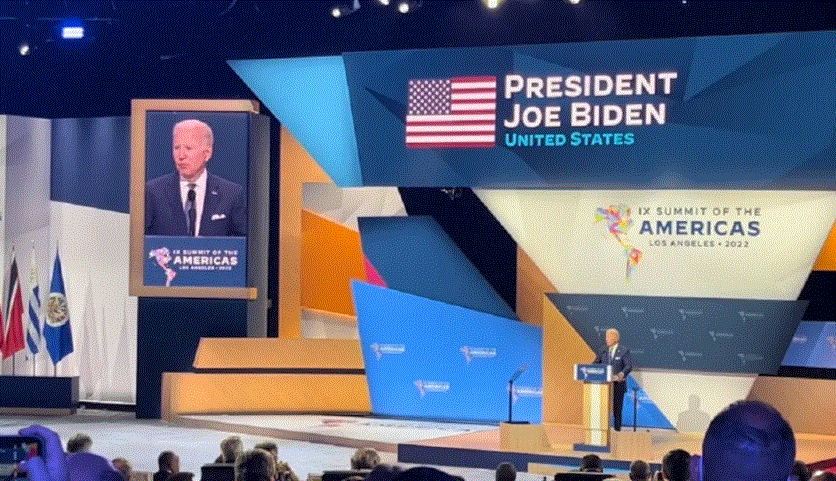
It will be some time before we know how productive the Los Angeles Summit was. Some will remember it as a meeting to which not everyone was invited and to which some guests refused to attend. The memory of disagreements, of doubts, of many fiery and predictable speeches and of some official declarations, capable of summoning unanimity and hiding differences, will remain.
A few days before the curtain falls, everyone will begin to wonder if the topics discussed will give rise to programs and actions. When tempers and criticism cool down, the feeling will remain that the Continent continues to postpone the discussion on the capital issue: that of the inequality that exists within each country. Marked by a legitimate aspiration for economic progress, we have reduced the region’s objectives to growth and have limited ourselves to measuring its success or failure in terms of indices. The per capita product and its expansion is not, however, a reference for equality or quality of life.
It is good to reiterate the commitment to the Inter-American Democratic Charter, including the establishment of mechanisms to face new challenges to democracy, supporting the work of electoral observation missions, following up on the commitment to promote transparency, accountability and fight corruption. It is right to insist on the protection of human rights defenders and to increase the participation of civil society, the private sector and new actors in democratic processes and decision-making. It is equally good to turn attention to new problems, those related to the transition to clean energy, ways to share technical knowledge and best practices to put the Americas at the forefront of climate change, digital transformation.
It was to be expected, however, that the Summit of the Americas would be more in tune with the interests and aspirations of citizens. The little interest caused explains the also non-existent or very low hope that it encourages. And it will be like that as long as the most stinging of the issues, that of resolving the monstrous social fracture that the countries harbor, is not thoroughly considered. There is talk of imbalances, of the deficiencies of the administrative model, of economic or social variables, but the causes and solutions of a model that provokes the exclusion of enormous masses of citizens from the welfare of progress, while a few benefit from a ominous slack. The political discourse is full of approaches or figures on how inequality and its consequences have been structured, but they do not agree, nor did they agree this time, instruments of action to banish it.
The Los Angeles Summit missed another opportunity to address it. The vigorous defense of democracy and human rights made by each of those present turns out to be hollow as long as they do not all insist on putting an end to this undeniable problem. The leaders of America had the opportunity to develop a pragmatic, advanced agenda, in accordance with the clamor of the citizenry. Thinking about society, about the commitment to understand it and to represent it, distinguishes the leader from the mere official. Representativeness demands mysticism, knowledge placed at the service of the common good makes the difference between the leader and the bureaucrat. The ruling class is not facing the challenge of correctly interpreting the feelings and aspirations of the citizens. And that is the only way to regain their trust.








